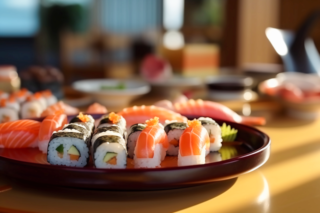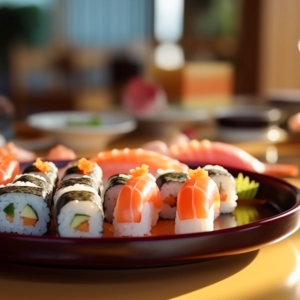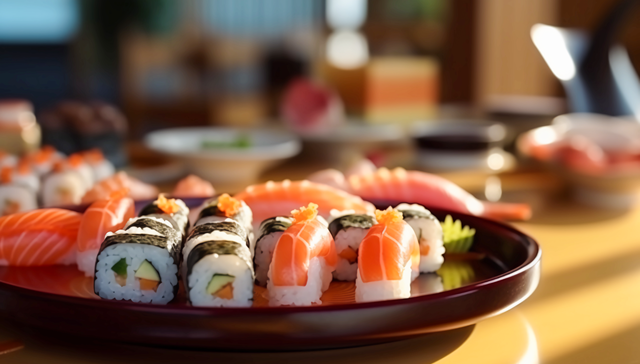By Staff reporters
Japan started releasing treated water from the Fukushima Daiichi nuclear power plant into the Pacific Ocean on Thursday.
The International Atomic Energy Agency says the practice is consistent with international safety standards. Still, the water release has prompted protests, and even panic, especially in neighboring countries.
Fresh at any price
In China, the authorities immediately banned imports of seafood from Japan. Shoppers raided supermarkets for salt. Some old wives' remedies against radiation sickness are also out of stock.

High-end Japanese restaurants, still reeling from an earlier import restriction on seafood from ten prefectures near Fukushima issued in July, are worried about the long-term impact of the sweeping ban. No longer able to charge high prices for seafood air-shipped from Japan at peak freshness, they are now forced to find workarounds.
“Eat whatever you can now. We don’t know about the future,” said the manager at Yushou, a Kaiseki restaurant in Shanghai where 1,450 yuan (US$200) per head is the norm. Like many similar restaurants, Yushou is already using fish from areas not covered by the July ban.
There are 78,900 Japanese restaurants in China, and in almost 4,000 of them, diners typically pay more than 500 yuan, often a lot more.
“Our suppliers bought some fish from non-Fukushima areas when it was still allowed,” says the manager at sushi restaurant Kenichi Fujimoto, where a meal costs 2,700 per person on average. “In the future, we might buy from other countries.”
Nothing from Japan
Some restaurants have already made the switch.
“We changed suppliers a month ago. Now, none of our ingredients are from Japan. Everything comes either from here in China, or from countries far from Japan, such as the US and Australia,” said the manager at Guangzhou’s Sushi Man (average spend, 1,800 yuan).
The owner of Mao Omakase said his restaurant stopped buying from Japan months before. “For one thing, there’s radiation. Plus, supply was tight,” he said. He has been buying tuna from Spain and sea urchins from Russia and France.
Instead of advertising the provenance of their ingredients, these restaurants now stress their authentic recipes and meticulous execution.
Midrange and budget restaurants already buy ingredients from outside Japan and are mostly unaffected. Almost all seafood used in these restaurants is either domestically produced or imported from Europe and Latin America.
Nonsensical mutterings on social media
Mistrust of all food from Japan, scientifically grounded or not, is spreading. Rice and soy sauce are targets of suspicion. Saki bars have taken “imported from Japan” off their ads. Most bizarrely, people are stockpiling salt, prompted by misinformation on social media.
Supermarkets in at least Fuzhou, Guangdong and Jiangsu are seeing long lines of people buying salt. Some people interviewed were worried that salt would become radioactive after the water release. Some believe iodized salt offers protection. The government has debunked both beliefs and urged against panic buying.
Salt purchases shot up 500 percent overnight on JD.com. A spokesperson said the company noticed an increase in sales as early as Monday and had to replenish the supply, but didn't say where the new supply came from. Dingdong Maicai, another online grocery website, says it has stocked twice as much salt as usual and increased the supply of "other seasonings."
Geiger counters at the ready
China National Salt Industry Corporation said on Thursday night that 87 percent of the salt produced in China is rock salt, which could not possibly be affected by the Fukushima water release. The company promised to stabilize the market and ensure the quantity and quality of its supply.
A manager at Guangdong Salt told reporters that the company has been monitoring the radioactivity of the water in its production areas. It also assured the public that its sea salt is safe for consumption.





